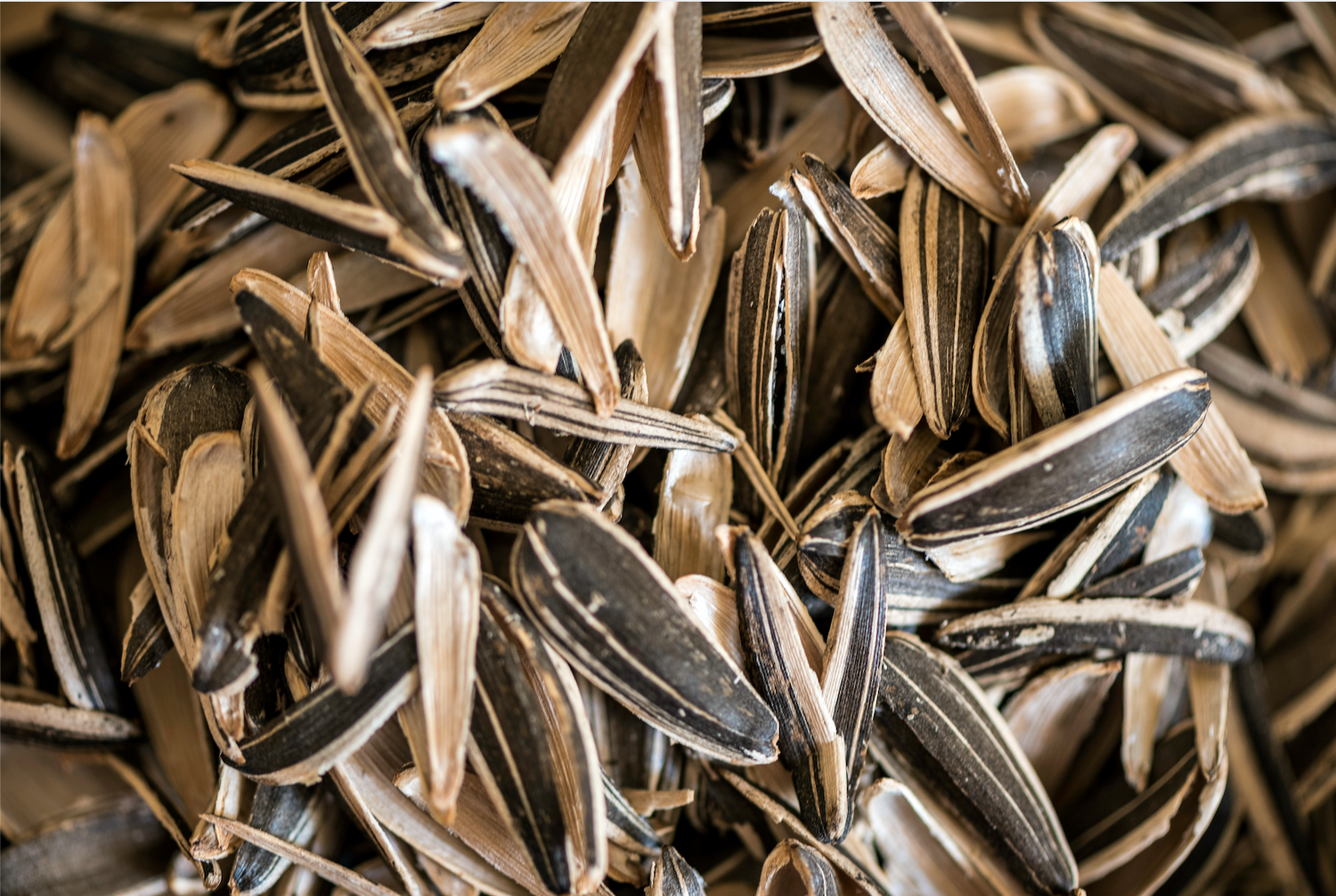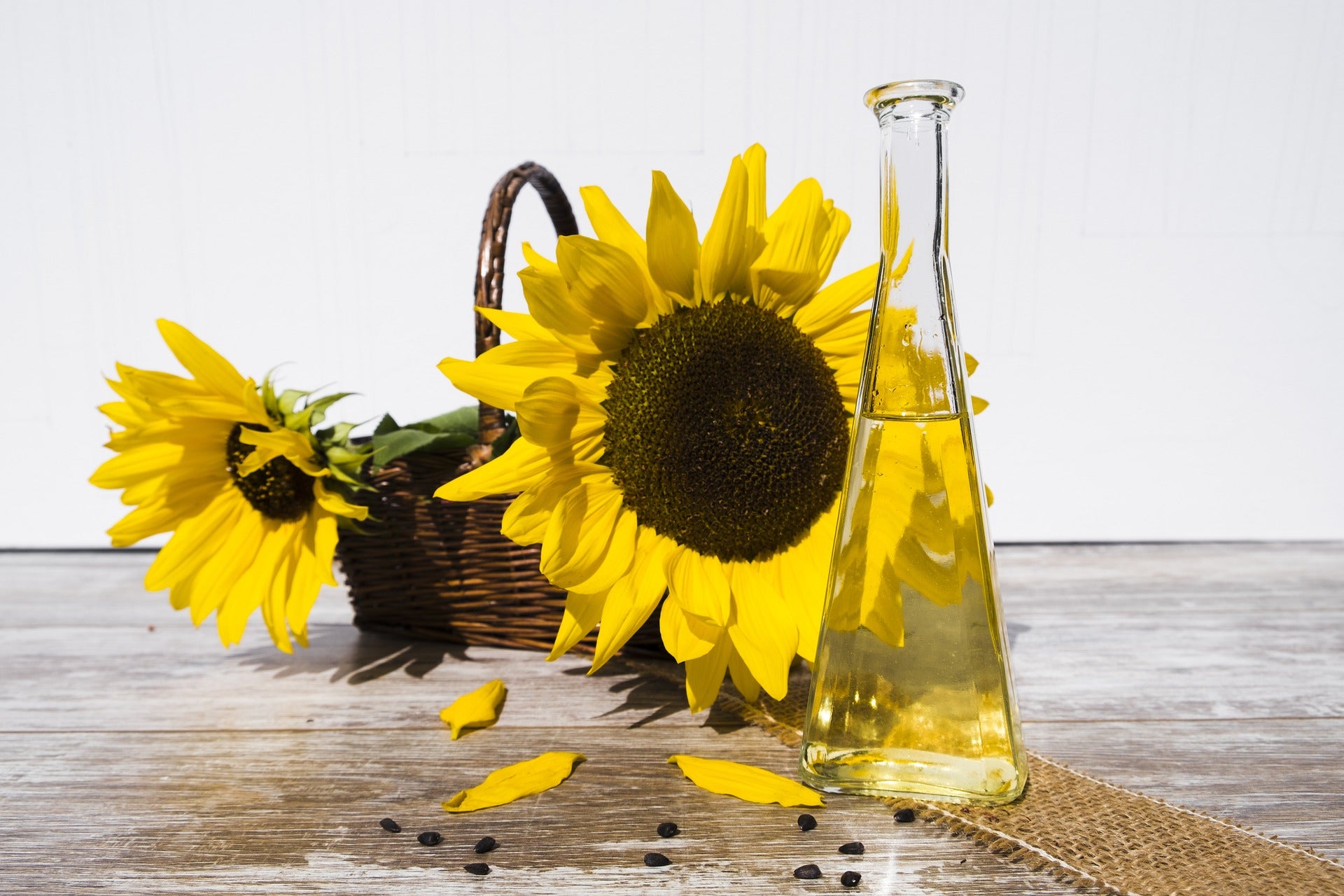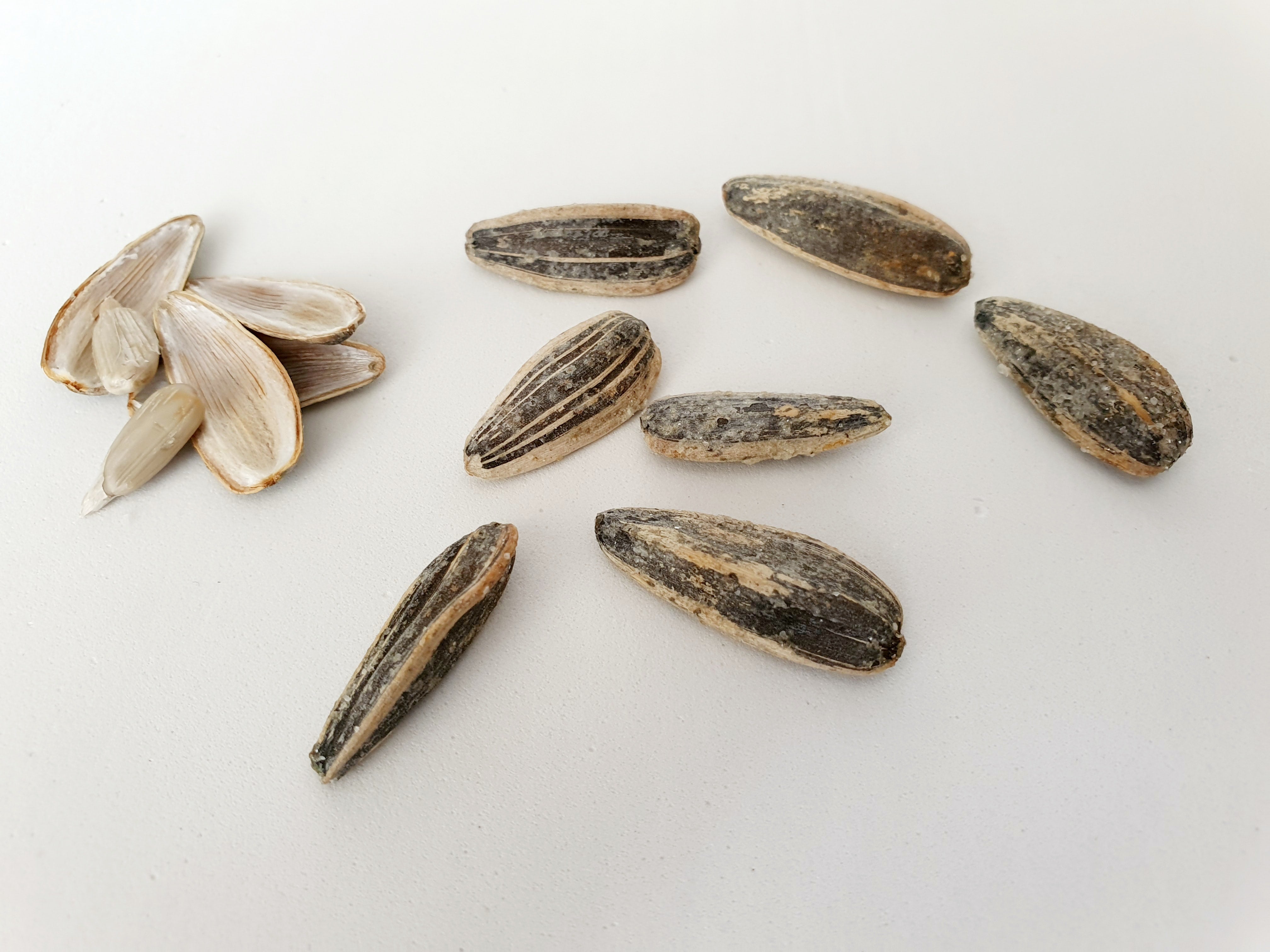Sunflower seeds are a crunchy, salty snack filled with healthy fats and nutrients, making them a popular choice among those looking to fuel up or just munch in-between meals. But after you’ve enjoyed the tasty insides of your sunflower seed, what do you do with the shells? Are they edible? This blog post explores the possibilities of using sunflower seed shells for more than just throwing them out. Learn about the nutritional benefits these crunchy byproducts offer and how to put them to good use, so nothing goes to waste!
Sunflower Seed Shells & Sunflower Kernels
The outer layer of a sunflower seed is called its shell or hull. It is usually dark brown or black in color, with white stripes running along its length. The shell is made up of fibrous material that contains small amounts of fat and protein but very little nutritional value. While some people enjoy eating it as a snack, most don't because it can be difficult to chew and swallow.
The inside part of a sunflower seed is known as its kernel or meat. This part has an oval shape, yellow color, and a slightly sweet taste. It contains more nutrients than the shell, including high levels of vitamin E and B vitamins such as thiamine and folate. It also provides healthy fats like linoleic acid, which are essential for maintaining good health. In addition to being eaten on their own as snacks, sunflower kernels can be used in baking recipes or added to salads for extra crunchiness.
Health risks of eating Sunflower shells
While it is possible to eat sunflower seed shells, some potential health risks are associated with doing so. For one thing, the shells may contain harmful bacteria that can cause food poisoning if ingested. Furthermore, the shells are difficult to digest and can irritate your digestive system if consumed in large quantities. Finally, the fibrous material in the shells can become lodged in your throat, potentially causing choking.
Sunflower seeds are a powerhouse of nutrition, offering an array of beneficial nutrients such as vitamin E and magnesium. As if that wasn’t enough, they also contain phytosterols - plant compounds known to lower cholesterol levels! Furthermore, sunflower seeds provide you with fiber, iron, and vitamin C – making them even more nutritious. So why not add this superfood to your diet today?
However, if you still want to try eating sunflower seed shells, ensure they are fresh and stored properly. It’s also best to start with a small amount first and observe how your body reacts before consuming larger amounts. Ultimately, it is up to you to decide if the potential health risks are worth the taste of the shells.
What to Do With Sunflower Seed Shells
Sunflower seed shells can be reused in various ways to help you save money and reduce your environmental impact. Here are some ideas for what to do with sunflower seed shells:
Composting
Sunflower seed shells can be great for composting. They’re full of important minerals that enrich the soil with nitrogen and phosphorus. The shells also add texture and bulk to your compost pile, which helps to aerate it and keep it from getting too compacted. To use them in your compost, just make sure to break up the shells into smaller pieces so they can decompose more quickly.
Mulch

Another way to use sunflower seed shells is as mulch in your garden or flower beds. Spread them around your plants before adding a layer of soil on top. This will help insulate the soil and protect it from extreme temperatures, which can be beneficial during both hot summer days and freezing winter nights. The shells also act as a natural weed deterrent, blocking sunlight from reaching any pesky plants trying to creep into your garden beds.
Fuel Source
Believe it or not, sunflower seed shells can also be used as a fuel source! All you need is some dry leaves or combustible material, and you’ll have an eco-friendly fire starter that will keep your fire burning for hours on end! This is perfect for camping trips or backyard get-togethers where you want an easy way to light up a fire without having to worry about running out of wood or charcoal. Plus, the added nutrients in the sunflower seed shells will contribute to healthier air quality while burning!
Making Jewelry
If you are passionate about jewelry-making, give sunflower seed shells a try! Drill small holes into the shells and string them together with fishing lines or wire to create unique pieces of jewelry that look beautiful when worn. You can even paint the shells different colors before drilling holes if you want something more vibrant and colorful.
Making Paints
If you’re looking for an eco-friendly way to create your own paints, look no further than sunflower seed shells! By grinding up dried sunflower seeds and mixing them with water, you can create natural paints that will last a long time without any additives or preservatives. The paint will be slightly different depending on how much water is added; experiment with different ratios until you find one that works best for your project.
Conclusion
Sunflower seed shells have many uses beyond being just snack food. From composting and mulching to using them as fuel sources, there are plenty of ways to put those empty hulls to good use! So next time you’re eating sunflower seeds at a ballgame or outdoor gathering, remember that those empty husks don’t have to go straight into the trash - they can be reused in many different ways! Baseball lovers and sunflower seed enthusiasts alike can appreciate these sustainable solutions made possible by those little hulls we all know so well.
The next time you’re looking for a healthy snack, be sure to check out our SMACKIN' Sunflower Seeds Sampler Pack. It includes six different varieties of sunflower seeds, so you can find the perfect one for you. So what are you waiting for? Order our sunflower seed sampler pack today!




Leave a comment
This site is protected by hCaptcha and the hCaptcha Privacy Policy and Terms of Service apply.